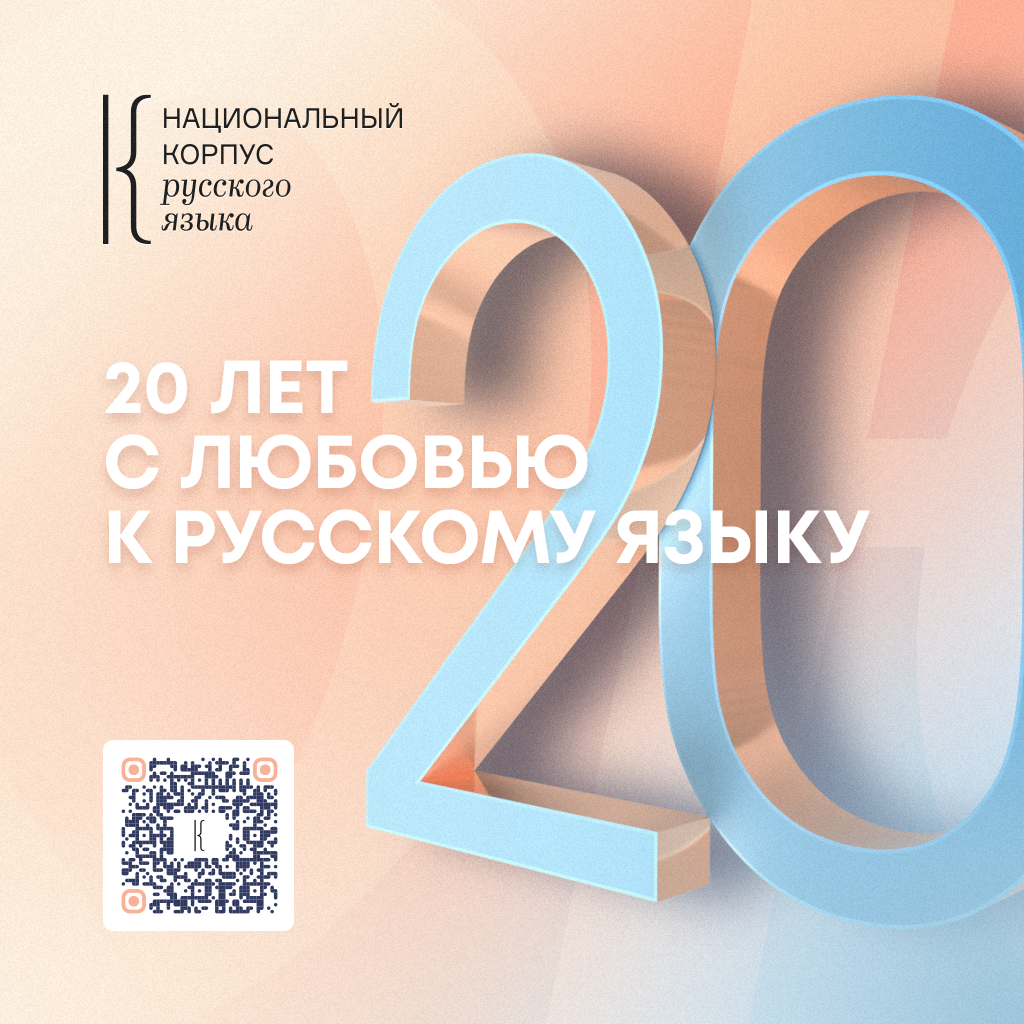RNC News
The Russian National Corpus celebrates its 20th anniversary!
On April 29, 2004, the RNC website was opened for free access. But the creation of the RNC began much earlier, back in 2000. It is symbolic that the official "birthday" of the Corpus is on April 29 – the birthday of the Russian linguist, author of the Grammatical Dictionary of the Russian language A. A. Zaliznyak (1935-2017).
It all started with the idea of creating a complete collection of texts that would be culturally representative and reflect the diversity of prose written between 1965 and 2000. Currently, the RNC consists of 49 corpora with a total volume of more than two billion tokens. For 20 years, the Corpus has become an indispensable tool for linguists, teachers, students and anyone interested in the Russian language.
Congratulations to the creators of the RNC and those who help it develop! Thanks to you, the Corpus continues to grow and improve, providing new opportunities for learning the Russian language.
For those who are interested in learning more about the history and modern capabilities of the Corpus, we have prepared a set of materials:
- Explore how the corpus looked 20 years ago, in the RNC Museum.
- Immerse yourself in the history of the creation and development of the RNC in a special project of the “Bolshoy gorod”.
- Read the User Guide and learn how to use the corpus for different tasks.
- Explore the publications about the RNC in the recently updated section. We recommend paying attention to the recent publication on the fundamental reconstruction and modernization of the RNC platform.
- Download and apply neural network models, which are used to mark up words and texts of the Corpus, for your own tasks
- Find out how to get the offline version of the Corpus for research.
Those who want to participate in the development of the corpus are invited to join the group «Друзья НейроКРЯ». You will be the first to learn about upcoming projects and will be able to participate in them. Recently, we launched a new experiment to find out which definitions of words are better perceived by users: taken from dictionaries or generated by a neural network.

